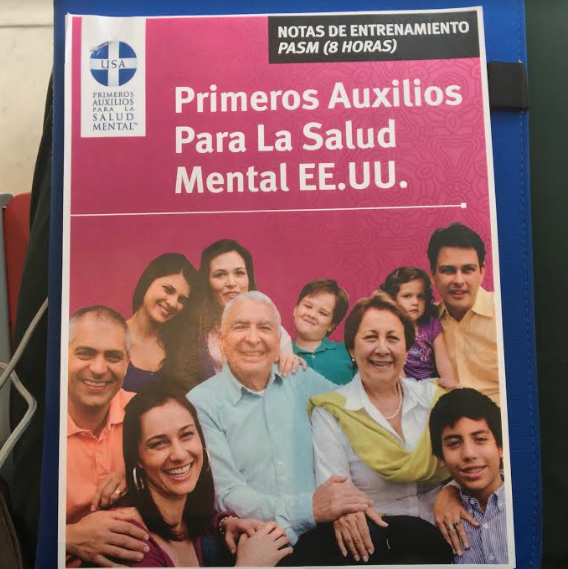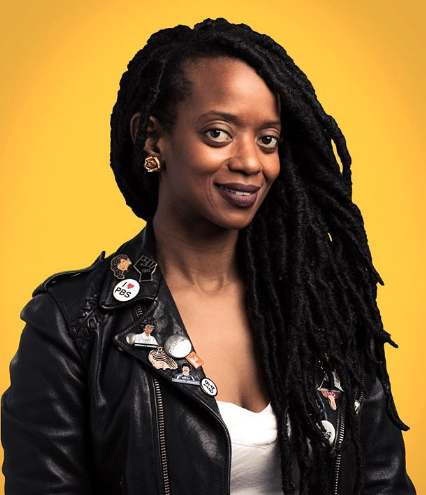I am black and I have complex Post Traumatic Stress Disorder (c.PTSD). My blackness intersects with my history of trauma and current mental illnesses in very specific ways. One of the ways in which they intersect is through the constant news of another black person being murdered or “turning up dead” or being brutalized or traumatized every day. Some people say that it’s once every eight hours, others say it’s once every 28 hours, but with extreme frequency a black person is murdered by someone in service of or protected by the United States of America.
Whether Black folks are diagnosed as mentally ill or not, this constant news of death and destruction is affecting us. For example, the suicide rate for black youth has nearly doubled while that of other children has gone down. We are experiencing genocide both mentally and physically so I want to offer some tips that are helping me to process my pain while still doing what I need to do to survive in America.
- Recognize that what we are experiencing is genocide. Naming it and dealing with the reality of our experiences is so important. Don’t gaslight yourself or allow others to gaslight you. The issue is not a bunch of people making mistakes, the issue is systemic.
- Learn about the people who came before you. The genocide we are experiencing is not new. We have been here dealing with the same kinds of trauma at the hands of white folks since before we even came to America. Situating our experiences in the context of those who came before us is helpful because for me at least it’s inspiring. When I think about Harriet Tubman or Toussaint L’Ouverture or Amilcar Cabral I am reminded that I come from very strong people. Someone once told me we do a disservice to those who come before us when we feel hopeless (about our ability to free ourselves from enslavement and white supremacy) today and it’s true. If Toussaint could free a country from the slavery and French rule then we can free ourselves from white supremacy.
- It’s especially important to teach the children about the people who came before them as well. Find kid friendly stories about our history and let the children know where they came from early.
- Find or create community. The kyriarchy, or the intersecting systems of oppression that is at the root of systemic black death, thrives when we are isolated. Find like minded people irl or online and build community with them. Eat dinner with them. Go to a park. Black love, romantic or otherwise is so healing and important. And talking about your feelings and processing in a group us very healing. Especially if you can not access quality mental health services.
- Make sure you eat frequently and drink water. Stretch. Wash your face. Be gentle with yourself, the world around us is already so rough. We don’t need to add to it. If possible go outside in nature, or in your community. Remind yourself that black people have survived so much before this and that we as a whole will survive this too.
- Work in your communities to fight back, in every way you can. What skills or resources do you have to offer to the people who are our modern day Harriet’s and Amilcar’s and Toussaint’s? Find these organizations that are genuinely about black liberation and help in whatever way you can. Maybe you aren’t able to do direct action or face arrest but if you can cook for a meeting or provide books and diapers to help the young parents and child care providers then you are already helping so much.
- Grieve. You should cry or be angry if you feel like crying or being angry. Black folks as a whole We are taught from birth to police our emotions to the point where a lot of us can’t even feel them anymore. Connect with the part of you that is hurting and let it hurt. Emotions are human and we are not robots. We are more than dancing and singing and athletic machines that can take all matter of abuse and keep churning out culture for the mainstream to commodify. We are allowed to grieve.
- Partake in black culture. Listen to black music. Read black books and view black art. We deserve to be happy too.
The struggle is real but we are survivors. Please take your time and do what you need to do to make sure you and your family is okay. These are some simple things that work for me, and I hope they can also help you if you are reading this. Let me know in the comments of anything that helps you in times like these. What music or art or book or historical figure gives you hope?






























